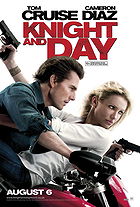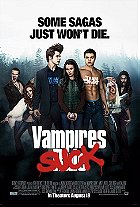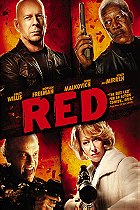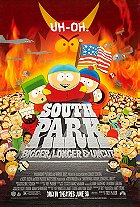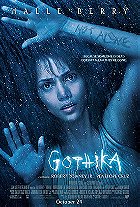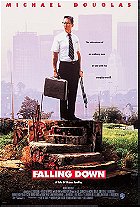The Rocky series may have ultimately degenerated into a flashy, soulless boxing franchise, but this first instalment is unlike the majority of its follow-ups - it is a remarkable, heartfelt, inspirational sports drama and a poignant character study concerning the determination of one man. It's easy to dismiss Rocky as just a motion picture about boxing, yet it works on several levels - the film is an inspiring fable of the underdog, a warm love story, and a dramatic tale of unrealised dreams all wrapped into one. While a low-budget picture without major backing, Rocky was a hit; earning a mint at the box office, transforming Sylvester Stallone into a star, and collecting three Academy Awards (Best Director, Best Editing, and Best Picture). The weight of multiple sequels and several imitators may have tarnished Rocky, but the movie nonetheless stands as a true highlight of classic American filmmaking, and one of the greatest movies of all time.

Rocky is the story of the Philadelphia inhabitant Rocky Balboa (Stallone), who earns a living by partaking in small-time boxing matches and working as an enforcer for a local loan shark. Whenever Rocky is not in the ring or twisting the arms of indebt Philadelphia residents, he socialises with the shy, reserved Adrian (Shire) and her brother Paulie (Young). By all accounts, Rocky's life is unremarkable, but he is soon given the chance of a lifetime. Heavyweight boxing champion Apollo Creed (Weathers) is seeking an opponent for his next fight, and decides that giving a low-ranked boxer a shot at the title would be a terrific publicity stunt. Apollo chooses Rocky on account of his moniker “The Italian Stallion”, and believes the fight will be a walk in the park. Rocky, on the other hand, perceives the fight as an opportunity to go the distance with the champ and gain some respect.
Sylvester Stallone's inspiration for Rocky was derived from the boxing bout between Muhammad Ali and Chuck Wepner. In the 1970s, Wepner was a low-ranked boxer who surprised everybody (and probably bankrupted a few bookies, too) when he almost lasted 15 rounds in the ring with Ali while the champion was still wearing his belt. Impressed by Wepner's determination, Stallone (with a measly $106 in his bank account) worked in his kitchen to pen the screenplay for Rocky in 86 hours. He soon began shopping around the script, and insisted that he be the one to star as Rocky instead of a big-name actor. Producers Irwin Winkler and Robert Chartoff ultimately agreed, and the movie was filmed in 28 days on a diminutive $1 million budget. The rest, as they say, is history. While Stallone faced ridicule in subsequent years for ham-fisted acting within brain-dead action films, it cannot be denied that he created a magnetic character in Rocky Balboa; a figure whom many perceived as an inspiration to overcome the ostensibly impossible in their own lives. Rocky may adhere to clichés, but Stallone managed to effectively apply them in a way that captivated viewers and did not seem over-the-top.

The brilliance of Rocky is that it's primarily a drama concentrating on characters rather than sports. It would be erroneous to state that the climactic boxing match is unimportant (it is the centrepiece), but the production is not just about the action. In the lead-up to Rocky's match with Apollo, time is spent developing Rocky as a person. He is not traditional hero material - he's boorish, somewhat dumb, and has limited aspirations. Yet, there's something inherently endearing about Rocky, mainly due to the gentle, caring way he treats his new girlfriend Adrian. The relationship between Rocky and Adrian affords the film its emotional core, and it's key to making the ending so triumphant. Plus, it is a joy watching Rocky progress through the proceedings with confidence in himself while at the same time realising his limitations. Several dramatic moments within Rocky have been mocked over the years in parodies and knock-offs, yet it's still easy to let yourself be absorbed by this masterful film.
Rocky is widely considered to be Sylvester Stallone's movie since he wrote the screenplay, played the protagonist, and choreographed the boxing sequences. However, he did not direct the movie - John G. Avildsen was at the helm. Avildsen was a director of no particular distinction in 1976, yet the success of Rocky propelled him to a moderately rewarding career. And Avildsen's efforts should not be underestimated - while Stallone deserves some credit for generating the film's heart, Avildsen's directorial work was equally beneficial. Most impressive is the climactic fight, which in the hands of Avildsen feels like a real boxing match. There's a great deal of tension, too - you do not know who will emerge victorious. The definitive touch was Bill Conti's music. With an exceptional main theme, an equally exceptional title song (the Oscar-nominated Gonna Fly Now), and an all-round engaging score, Conti's contributions topped off the movie immaculately.

Prior to his performance in Rocky, Sylvester Stallone was virtually an unknown. Yet, this movie launched Stallone's acting career that catapulted him to the highest orbit of action stars where he ranked among the highest paid actors in Hollywood. In Rocky, Stallone displayed legitimate acting talent, and even acquired an Oscar nomination. He truly brought the titular role to life in endearing ways. We love Rocky not just because he's an underdog but because he's honest, caring, generous, humble and disciplined. It's nothing short of amazing that Stallone created a schmalzy character and a maudlin story, yet made the elements feel completely believable rather than sugar-coated. The supporting cast, meanwhile, is comprised of a number of low-profile actors. Burgess Meredith is a standout as Mickey; the old timer who trains Rocky. A colourful and tough performance, Meredith pulled off the role with commendable passion and conviction. Also in the cast is Talia Shire, who was known at the time for her role in the Godfather movies. Shire's performance as Adrian is tender and endearing - it's easy to understand Rocky's love for her. And as Apollo Creed, Carl Weathers is terrific, while Burt Young is excellent as Paulie.
Decades on, a lot of cynical movie-goers and critics still proclaim that Rocky did not deserve Best Picture at the 1977 Academy Awards over two of its competitors, Taxi Driver and Network. Nonetheless, this reviewer whole-heartedly believes that Rocky deserved Best Picture. Not only was it arguably better than its competitors, but the movie, like its protagonist, was the underdog - this low-budget film grabbing the Best Picture Oscar was as unlikely as Rocky going the distance with Apollo Creed. Added to this, the film was an allegory for Stallone's life in the mid-'70s. Prior to '76, Stallone was a low-ranked actor, but Rocky gave him the opportunity to become a big star. Much like what happened to Rocky Balboa, the gamble paid off. The film's success even spawned five sequels, beginning with Rocky II in 1979.
10/10
 Login
Login
 Home
Home 183 Lists
183 Lists 1663 Reviews
1663 Reviews Collections
Collections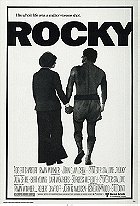
 0 comments,
0 comments, 



